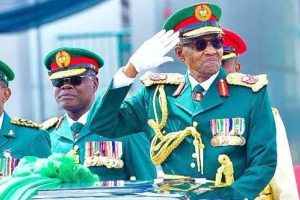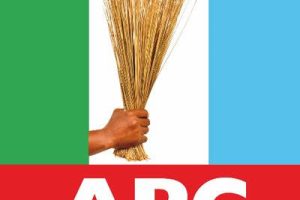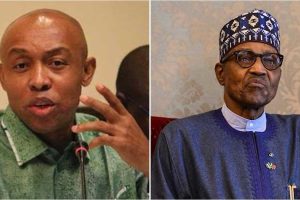
Resident doctors in the Federal Capital Territory (FCT) have accused FCT Minister Nyesom Wike, Senate President Godswill Akpabio, and other top government officials of neglecting healthcare facilities and failing to address workers’ welfare.
The doctors began a three-day warning strike on Wednesday following unpaid salaries, allowances, and other unresolved issues after the expiration of a three-week ultimatum.
The strike has severely disrupted activities in government hospitals across Abuja, including those in Wuse, Asokoro, Maitama, Kubwa, Zuba, Kwali, Abaji, and Nyanya.
Speaking on Channels Television’s Politics Today, George Ebong, President of the Association of Resident Doctors in the FCT, called on Wike, Akpabio, and other government officials to personally use public hospitals to understand the poor state of healthcare services.
“If we are ready to fix the healthcare system in this country, I would think that every government official must use the government hospitals. Let’s start with that,” Ebong stated.
He added, “I would like to see the minister use Wuse General Hospital. I would like to see the Senate President use Maitama General Hospital. I would like to see the Speaker use Nyanya General Hospital. Then, we can start to fix the system. If they don’t use it, then we can’t fix it. I’m sorry, but that’s the truth.”
Ebong accused the FCT minister of prioritizing infrastructure projects such as roads while neglecting the pressing issues in the healthcare sector. He described hospitals in the capital as being in a deplorable state, with many doctors unpaid for six months despite handling excessive workloads.
“That’s just where we have our concerns. The minister has been very busy with projects, fixing roads, and all of that. We feel that he should also focus on the hospitals right now.
“We feel that we are the human abandoned project. No matter the things he does by fixing roads and bridges, the hospitals are the very first point of innovation and rehabilitation. They are hallowed ground; he cannot neglect them,” he added.
Ebong highlighted the dire conditions in government hospitals, which include:
- Frequent Power Outages: Inconsistent electricity supply often hampers medical tests, especially over weekends.
- Lack of Equipment: Key diagnostic tools, such as scan machines, are non-functional.
- Drug Shortages: Essential medications are unavailable.
- Insufficient Manpower: Doctors are overburdened, with some taking on the workload of four or more colleagues.
The doctors also lamented the lack of engagement with the FCT minister despite repeated attempts to communicate their grievances through letters and meetings. “When he [Wike] first became the minister, that was the only time we’ve met him. We’ve sent him a series of letters, and I am sure he is aware,” Ebong said.
The strike and accompanying criticisms have reignited calls for the government to prioritize healthcare services and address the systemic challenges affecting the sector. Doctors emphasized that fixing hospitals is just as critical as developing infrastructure, as lives are directly at stake.
With public hospitals crippled and patients left stranded, stakeholders are urging the federal government and the FCT administration to engage in dialogue with the striking doctors and implement reforms to prevent further deterioration of the healthcare system.





